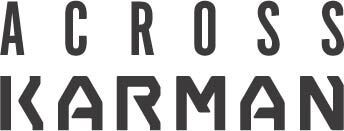The Triangular Balance: Mexico, the United States, and China


China has become the adhesive that holds North America together because of its contribution of affordable inputs and raw materials, which are in turn incorporated into Mexican exported goods bound for the US and beyond. As this paper will discuss, it is important to consider the changing political context in Washington towards China, and how Mexico could respond to it.
It is expected that Washington’s animosity towards Beijing will not change in the near future, regardless of who wins the upcoming US elections in November. What is less clear is how Mexico will handle its relationship with China, especially after the governing party (Morena) won the June general elections with an overwhelming majority.
Ideally, Mexico and the United States should have an understanding – if not outright cooperation – on how Beijing should be approached, and ideally, a joint position should spring naturally from the two neighbors. Yet, the reality is much more complex, especially since Chinese companies have started to invest in Mexico, and although the amount is still a slight fraction of the foreign direct investment (FDI) inflows that Mexico receives every year, the expectation is that such investments will increase in number and in quality, which has caused concern (and some incendiary remarks) from the United States.
The issue is further complicated because, should the United States attempt to coerce Mexico into adopting a specific position towards China, the result could be the exact opposite of what Washington wishes to accomplish.
Thus, this document will begin by discussing the actual size of Chinese trade and investment in Mexico and the United States, and how the US and Mexico have responded to this dynamic. It will also explore the implications of China ahead of the 2026 USMCA review, concluding with some reflections on the importance of striking a trilateral balance between Mexico, the United States, and China, in keeping with the mission of the Mexico Institute of the Wilson Center: namely, to improve the understanding, communication, and cooperation between the United States and Mexico through the promotion of original research.
Author


Mexico Institute
The Mexico Institute seeks to improve understanding, communication, and cooperation between Mexico and the United States by promoting original research, encouraging public discussion, and proposing policy options for enhancing the bilateral relationship. A binational Advisory Board, chaired by Luis Téllez and Earl Anthony Wayne, oversees the work of the Mexico Institute. Read more

Explore More
Browse Insights & Analysis
360° View of How Southeast Asia Can Attract More FDI in Chips and AI




